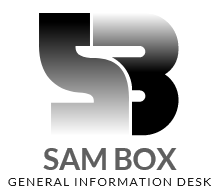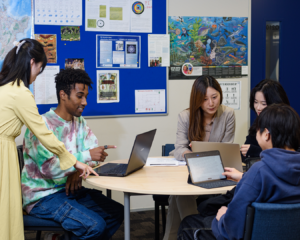Explore the exciting world of health learning online! Learn how digital platforms are revolutionizing health education, promoting well-being, and empowering individuals through accessible, expert-led courses.
Introduction
In a world that’s increasingly digital, health education is experiencing a thrilling transformation. Health learning online is no longer just a trend—it’s a movement, a revolution of accessible wellness, knowledge, and empowerment. From mental health support to public health promotion, learners now have the opportunity to grow, heal, and educate from anywhere in the world. Whether you’re a professional seeking career advancement or someone passionate about community well-being, this guide will open your eyes to the powerful possibilities of online health education.
History
Health education has deep roots, beginning in ancient civilizations where healers passed down knowledge orally or through rudimentary texts. Over time, institutional education systems evolved, particularly in the United States and United Kingdom, where public health awareness grew during the industrial age.
With the rise of the internet, the field of health promotion underwent a digital shift. Platforms such as Open Polytechnic of New Zealand and global health organizations started integrating e-learning tools to teach health behavior, disease prevention, and community health. The accessibility, flexibility, and interactivity of online platforms have since made health learning more inclusive and far-reaching.
Role of the Health Education Specialist
Health education specialists are the guiding lights behind successful public wellness initiatives. They are trained professionals who design, implement, and evaluate programs that foster health literacy, behavior change, and wellness culture.
Through online education, specialists now reach diverse populations, bridging the gap between health disparities and health equity. They advocate for change, create engaging online content, and support students across the globe—from Romania to New Zealand—all through a digital lens.
Peer Health Educators
Peer educators play a powerful role in shaping community health. These individuals, often students or trained volunteers, use shared experiences to foster trust, spark change, and encourage healthy behaviors within their communities.
Online platforms have supercharged their effectiveness. With digital tools, peer educators can now create webinars, lead forums, and share resources around mental health, sexual and reproductive health, and more—making their impact larger and more immediate than ever before.
Teaching School Health Education
Teaching health in schools is essential for instilling lifelong wellness habits. Traditional methods focus on in-person classroom instruction, but digital courses now offer scalable, personalized, and interactive options for students of all ages.
Schools in the United States, Ireland, and Taiwan have started to integrate online modules on emotional health, environmental health, and physical well-being. These tools support teachers and health specialists alike in shaping well-informed, health-conscious young people.
Mental Health
One of the most vital topics in online health learning is mental health. From anxiety to addiction, online platforms offer safe spaces to understand, reflect, and seek guidance.
Courses like the Bachelor of Social Health and Wellbeing (Mental Health and Addictions) by Open Polytechnic of New Zealand empower learners with strategies to support others and themselves. The rise of online therapy, self-help modules, and interactive support groups reflects a massive step toward health equity in mental care access.
School National Health Education Standards
In the U.S., the National Health Education Standards (NHES) provide a framework for developing comprehensive health programs in schools. These standards emphasize the importance of critical thinking, communication, and responsible decision-making in health.
Digital learning tools are helping educators bring NHES to life. Through videos, quizzes, and real-time feedback, students learn about health behavior, disease prevention, and health communication in engaging, effective ways.
Health Education Credentials in the United States
Certification in health education proves a professional’s expertise and commitment. In the U.S., credentials such as CHES (Certified Health Education Specialist) and MCHES (Master Certified Health Education Specialist) are highly respected.
Online preparation courses for these credentials make it easier for professionals to upskill. By mastering topics like health advocacy and public health policies through flexible learning paths, educators and specialists can amplify their impact and career potential.
Health Education Code of Ethics
Trust is everything in health education. The Code of Ethics ensures that educators act with integrity, competence, and respect for all individuals and communities.
Online training now includes ethics modules, ensuring that digital health advocates maintain accountability and transparency. These ethical guidelines are essential in guiding topics like health disparities and patient rights in both local and global contexts.
Health Education Societies in the United States
Several U.S.-based societies provide resources, community, and advocacy for health educators:
Society for Public Health Educators (SOPHE)
SOPHE leads initiatives in health communication and lifelong learning, offering webinars and certifications that inspire excellence and collaboration.
American Public Health Association (APHA)
With its robust research library and annual conferences, APHA connects professionals committed to community health, disease prevention, and health policy reform.
American Association of Health Education (AAHE)
AAHE promotes best practices in school and community settings, empowering educators through both online and in-person professional development.
International Union for Health Promotion and Education
The IUHPE brings together health professionals from across the globe to promote equity and access in public health. Through its online programs and publications, it sets international standards in health promotion, advocacy, and policy development.
This collaborative model ensures that professionals in countries like Poland, Japan, and United Kingdom have equal access to cutting-edge knowledge and resources.
Coalition of National Health Education Organizations
This coalition, comprising multiple U.S.-based organizations, unites efforts in advancing the profession of health education. It focuses on promoting standardized training and professional development through both offline and online channels.
Its initiatives emphasize consistent, quality education in areas like health literacy, health services, and support work—ensuring that learners receive reliable and up-to-date information.
School Health Education Worldwide
Globally, health education in schools varies widely, yet all share a common goal: informed and empowered youth.
Romania
Health programs in Romanian schools are expanding to include mental and social health, often leveraging mobile platforms to reach students in remote areas.
Japan
In Japan, Yogo teachers—specialized health educators—use online tools to supplement school-based health services. Students also engage in digital lessons on nutrition, hygiene, and emotional well-being.
Poland
With a strong emphasis on public health, Poland is incorporating digital health modules in secondary education, focusing on disease prevention and youth counseling.
Taiwan
Taiwan’s education system is integrating AI-powered tools and gamified health apps to teach students about physical and environmental health.
Ireland & United Kingdom
Both countries are embracing online platforms to teach sexual and reproductive health, mental wellness, and community health, providing valuable resources to educators and families alike.
Health Education and Sustainable Development Goals (SDGs)
Health learning online is directly linked to the UN’s Sustainable Development Goals, particularly SDG 3 (Good Health and Well-being) and SDG 4 (Quality Education). Digital education helps break down barriers to learning and improves access to critical information across diverse demographics.
By advancing health equity, reducing health disparities, and promoting lifelong learning, online health education plays a vital role in building healthier, more resilient societies.
Health and Wellbeing Courses
Online health and wellbeing courses cover a wide range of topics from fitness to spiritual health. They’re designed for personal development, career growth, and community impact.
Courses offered by institutions like the Open Polytechnic of New Zealand deliver accredited programs in areas like support work, healthcare assistance, and mental health—empowering learners to thrive professionally and personally.
New Zealand Certificate in Health and Wellbeing (Level 3) (Healthcare Assistance)
This qualification prepares learners to support people in hospitals, aged care, and community settings. Delivered online, it emphasizes empathy, safety, and technical competence.
New Zealand Certificate in Health and Wellbeing (Level 3) (Support Work)
Ideal for those working in disability or mental health services, this course builds strong interpersonal skills, cultural awareness, and health literacy—all accessible remotely.
Bachelor of Social Health and Wellbeing (Mental Health and Addictions)
This advanced program offers in-depth training in addictions, recovery models, and advocacy. Delivered entirely online, it’s perfect for learners balancing work and education.
Understanding Mental Health
A short yet powerful course designed for all, this program enhances awareness of mental health, resilience strategies, and community support services—crucial in today’s fast-paced world.
Conclusion
The future of health education is here—and it’s online. Whether you’re passionate about patient education, striving to reduce health disparities, or seeking personal growth, health learning online offers a flexible, trusted, and exciting path forward.
Join a global movement. Learn at your pace. Make a difference where it matters most—your community, your workplace, and your life.
Frequently Asked Questions (FAQs)
Q1: Is health learning online recognized by employers and health organizations?
Yes, especially when offered by accredited institutions like the Open Polytechnic of New Zealand or supported by organizations like the American Public Health Association.
Q2: Can I study healthcare assistance or support work online?
Absolutely. Many online courses offer practical and theoretical training for these roles, including the New Zealand Certificate in Health and Wellbeing (Level 3).
Q3: Are online health education courses suitable for beginners?
Yes. There are courses for all levels—from basic health literacy to advanced degrees in public health and mental health.
Q4: What is the role of peer health educators in digital learning?
Peer educators offer relatable, peer-to-peer health advice and often lead workshops and support groups in digital spaces.
Q5: How do I know if a health education course is credible?
Look for certifications, institutional affiliations (e.g., SOPHE, APHA), and reviews. Ethical standards and up-to-date content are also key indicators.







